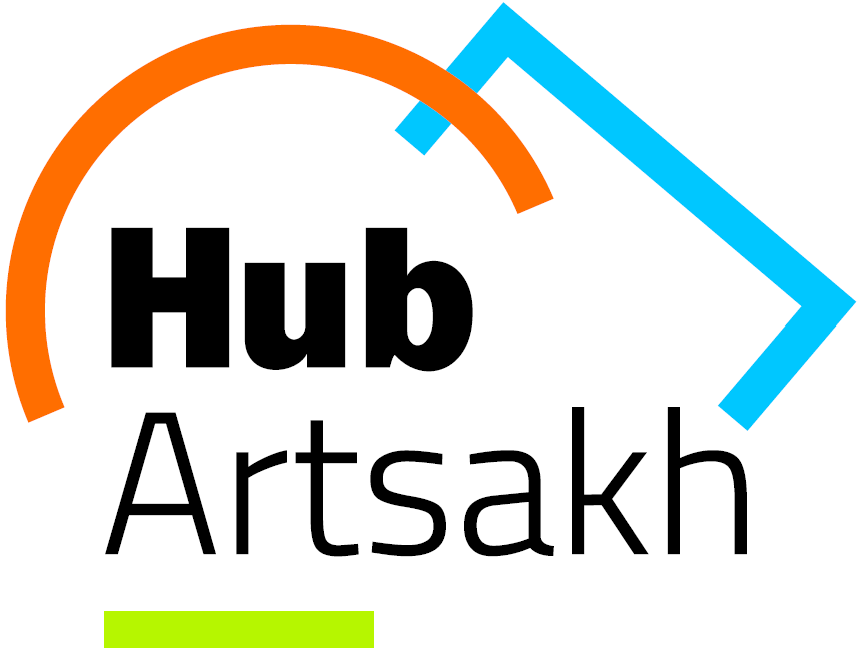Rapid Needs Assessment in Artsakh: Letting the Numbers Tell the Story
Hub Artsakh Press
« Originally published by EVN Report on the 15/08/2023»
By now we have all heard about the ongoing blockade of Artsakh which is nearing its eighth month. We have heard about the starving, sun-stroked children and the increasing rates of early-term miscarriages. We have heard about the endless queues for a loaf of bread that has become one of the sole lifelines of a starving population. We have seen the photos of dark, forcibly pedestrianized streets, and unceremoniously emptied-out markets.
This blockade has been imposed on Artsakh far longer than any of us could have anticipated. When the farcical news of Azerbaijani environmental protestors blocking the Lachin Corridor reached us, we were distressed, but naively optimistic, thinking the situation would be resolved in a matter of few days and life would go back to normal. A few days turned into a few weeks. Then, into a few months. And now, we have forgotten what normal used to be. Our optimism and hope is rapidly depleting, along with the food and water in Artsakh. Every single interaction we have is now wrapped in a latticework of tension, concern and fatigue.
All this, however, is bearable. Standing in the never-ending queues, and walking dozens of kilometers each day to secure some water can be bearable. It is possible to work around the electricity cuts, internet outages, and the pangs of hunger. Yet, the doubts that are cast on the severity of this blockade are enough to tip one over the edge. The hardest situation to manage is when the predicament of Artsakh is confronted with questions aiming to poke holes in testaments, rather than an outpouring of solidarity and support. Sometimes, it seems that the stories, photos, videos and outcries from Artsakh are not proof enough of the horrific nature of this ongoing blockade.
That is why at Hub Artsakh, we decided to revert to reliable, evidence-based, quantifiable numbers, and conduct a Rapid Needs Assessment to tell the story of the unfolding starvation and deprivation in Artsakh. This assessment was conducted by Hub Artsakh to collect quantitative data at the household level in order to understand the real needs and concerns of the population in Artsakh. From July 30 to August 4, 2023, a rapid needs assessment among 418 households in Artsakh was conducted to collect representative data with the application of a robust methodology.
Face-to-face interviews were held in four locations, including Stepanakert, Martuni, Martakert and Askeran. The objective was to capture, quantify, and amplify the needs and concerns of the population of Artsakh. The results of this survey are alarming, signaling a much larger crisis that will undoubtedly unfold if the blockade drags any longer without any intervention.
Key Findings
Food Consumption
The analysis of food consumption in the interviewed households showed that on average, households manage to have meals three times a day. However, this does not reflect the sufficiency of the meals, nor the food coping mechanisms employed to manage food scarcity and ensure they can meet their basic food needs.
Deeper analysis revealed that children under the age of 2 have meals more frequently compared to older children and adults. About 10% reported that children between the ages of 6-17 had 1-2 meals on average of the last three days before the interview day. It is important to mention that 11% of households reported that adult members had only one meal and 35% had two meals on average of the last three days before the interview. Based on this, it can be assumed that adults eat less to be able to provide food to children.
Additionally, more than half of respondents (62%) bought food with cash. This means that overall, the households’ purchasing power is not very low, which only confirms that the main reason for insufficient food consumption is the availability of food and not its accessibility.
Food Sufficiency and Obstacles to Having Sufficient Food
Having sufficient food means that all members of households have access to an adequate and nutritious food supply that meets their dietary needs and supports their overall well-being. This includes having enough food to maintain a balanced diet for all members of the households, without experiencing hunger or malnutrition.
The respondents were asked if there was sufficient food for their household during the last seven days. Only 5% reported that the food was fully sufficient, 65% said the food was partially sufficient, and 30% had insufficient food. This is an alarming finding confirming the lack of food in Artsakh and showing that 95% of households either have partially sufficient or insufficient food.
As the main obstacle for having insufficient food during the past seven days, 89% of respondents mentioned that “there is no food in the market”; 43% cited the reason to be the limitation or lack of access to markets because of disruption of transportation means, caused by the gas shortage. Another 25% indicated high prices and not enough money to buy food.
Extremely long queues to buy food also affected the sufficiency of food in households, because people, in particular those with small children, elderly and/or disabled people, were unable to stand and wait in the queues for indefinite amounts of time. This was further compounded by the fact that those in queues are unsure whether the food will be sufficient for everyone waiting to purchase.
Food Coping Mechanisms
Households usually employ food coping mechanisms to manage food scarcity and ensure they can meet their basic food needs. The analysis of the adoption of coping mechanisms per day displayed an alarming finding: 68% of households had to reduce the number of meals eaten and 51% had to rely on less preferred and less expensive food all seven days a week. Moreover, during all seven days in the past week, 38% of the adult population ate less so that small children could eat.
In light of the persisting situation and the continued adoption of food coping strategies, there is a growing concern for potential hunger and health issues with the affected population. As people resort to various coping mechanisms to access food, there could be significant consequences on the overall well-being of people.
Main Concerns
One of the objectives of the survey was to understand the main concerns of the population in Artsakh considering the current situation. The respondents were asked to name their concerns and rank them based on their priority. The most serious concern of households was the security situation in Artsakh. The shortage of food was ranked the second among the first priority concerns, and the first in the second and third priority concerns, confirming the lack of food availability. Another concern that can be seen in all three rankings was the shortage of medicine, indicating the challenges in assessing essential healthcare and medical supplies. The travel restrictions were frequently mentioned as one of serious concerns.
Humanitarian Assistance
Finally, the survey was used to collect data on the openness of the population for humanitarian support. Respondents were asked if it would make a difference where the humanitarian assistance is being delivered from. As such, 93.5% of the respondents answered that it would indeed make a difference for them where the assistance is coming from. Here, the predominant response was that humanitarian assistance would be acceptable only if it came through the Lachin Corridor, sent from Armenia or the international community. The key concern raised was that the humanitarian assistance provided from any other route would not be trustworthy.
Only 0.7% of respondents mentioned that it would not make a difference where the support is coming from. Here, the reasons mentioned were the catastrophic humanitarian crisis unfolding in Artsakh where people are already starving, and ensuring the availability of food for children at all costs; 5.7% were unable to answer this question.
The respondents were also asked to list their first three priority actions once the communication with Armenia is open. 56.65% of the respondents chose “stocking food” as their first priority. 14.35% of the respondents chose storage of medicine and seeking after medical services as their first priority. 13.39% of the respondents gave varying responses to this question, which stretched from reconnecting with the family to visiting the grave of a friend in Armenia.
Another interesting finding came from the question where the respondents were asked to make predictions about the next couple of months till the end of the year, and 71.27% of the population fears that the blockade will continue one way or the other. Only 5.2% responded that people of Artsakh might want to leave Artsakh due to security concerns.
Finally, respondents were asked to rate on a scale of 1 (definitely in favor) to 10 (definitely against) how they feel about the coexistence of Armenians and Azerbaijanis: 98.8% of respondents gave the rating of 10, indicating that they are definitely against.
Conclusion
The data collected by the Rapids Needs Assessment survey tells a harrowing story of increasing food insecurity and deteriorating emotional and physical wellbeing. Yet, it also reveals the resolve and steadfastness that the people of Artsakh have to continue living, creating, and flourishing in our ancestral lands.
When asked what they would do once the communication with Armenia is opened, one respondent, a middle aged woman in a family of four from Askeran, mentioned “I will order flowers for my flower shop.” This answer, perhaps, was the most poignant of all. While Artsakh continues to face numerous obstacles, a shortage of determination is not one of them.
The Rapids Needs Assessment report clearly outlines what to expect in the coming months. As a result of the closure of the Lachin Corridor, there is a critical lack of food and other essential goods. Although people can afford to buy food, they do not have sufficient food, because of the lack of food in markets, limited transportation means, long queues, and more. Thus, the insufficiency of food at households makes the latter heavily adopt coping mechanisms to be able to sustain their essential food needs.
The combined impact of these factors will result in a vicious cycle of food insecurity, malnutrition, and poverty. This, in turn, will lead to negative health outcomes, especially for vulnerable groups like children, pregnant women and elderly. In light of these circumstances, we recommend the following measures to address the short-term and long-term needs of the people in Artsakh.
Recommendation 1: Humanitarian aid and assistance
- Mobilize international aid organizations to provide immediate humanitarian aid, including food, medicine and other essential goods, in particular to vulnerable people.
- Regularly monitor the situation and call for immediate actions to stabilize the market.
- Strongly consider adopting a conflict sensitive approach for humanitarian assistance.
Recommendation 2: Security and stability
- Collaborate with regional and international partners to establish security measures and ensure the safety of residents of NK and aid workers.
- Facilitate dialogue and negotiations to address the underlying causes of the blockade and find peaceful solutions.
Recommendation 3: Diplomatic efforts
- Seek support from international organizations and allies to exert pressure to open the corridor for international organizations to deliver humanitarian aid.

Are you searching for a job, or need legal advice? Call our hotline!
Feel free to reach out to us, and our dedicated specialists will be at your service.
